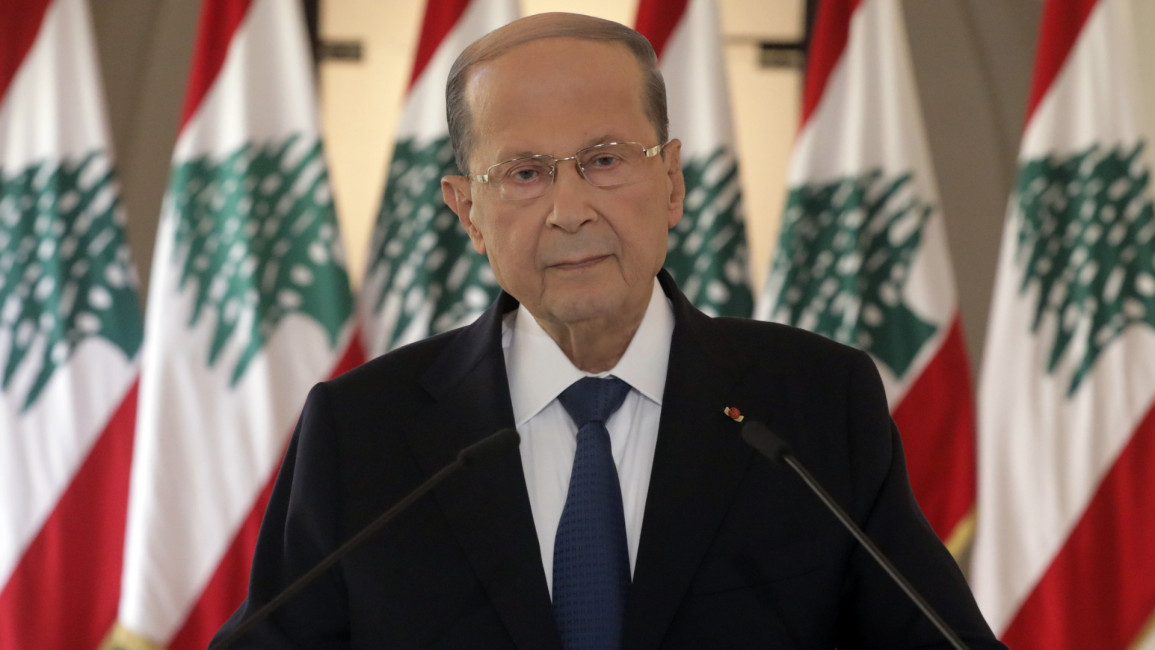Lebanon's president renews calls for return of Syrian refugees
In a UN address marking its 75th anniversary, Aoun said his country can no longer bear the brunt of the crisis.
"We call on the world to help us secure the safe return of displaced Syrians because Lebanon is groaning from the brunt of unprecedented crises rendering it incapable to further host the largest number of refugees per capita," said Aoun, referring to Lebanon hosting the largest number of refugees per capita in the world.
None of the Syrian refugees, however, live in officially established refugee camps or communities.
Aoun's comments came after Lebanon retrieved the bodies of four people, including a child, after they were trying to flee the crisis-hit country by sea on an overloaded dinghy.
At least one of the bodies was identified as belonging to a Syrian man, authorities in Lebanon said.
Read also: Aoun warns of ‘hell’ if new Lebanese government is not formed
In recent weeks, dozens of Syrians have tried to make the perilous sea journey from Lebanon to the Mediterranean island of Cyprus, authorities on both sides say.
In his address, Aoun praised the support and assistance provided by the UN organisation and friendly countries after Beirut's port explosion.
He affirmed his country's attachment to the "noble principles of the United Nations and its charter", calling for the "introduction of necessary reforms in the way this international institution works to double the effort to help countries in need for a better future".
Lebanon is mired in the country's worst economic and financial crisis in its modern history. It defaulted on paying back its debt for the first time ever in March, and the local currency has collapsed, leading to hyperinflation and soaring poverty and unemployment.
The small, cash-strapped country is in desperate need of financial assistance but the international community has refused to provide aid before serious reforms are made.
The crisis is largely blamed on decades of systematic corruption and mismanagement by Lebanon's ruling class.
The crisis has been worsened by the 4 August explosion at Beirut's port caused by the detonation of thousands of tons of ammonium nitrate, which killed nearly 200 people, including dozens of Syrians.
It also injured thousands and caused losses worth billions of dollars.
Lebanese authorities have recently placed increasing pressure on Syrians to leave the country, although activists insist it is not safe for them to do so while Bashar Al-Assad remains in power.
A number of Syrian refugees have been disappeared by regime intelligence on their return to Syria from Lebanon.
The United Nations has consistently warned that conditions in the war-ravaged country are not suitable for such returns, while the Syrian economy also remains in a state of near collapse with reports of mass hunger.
Follow us on Facebook, Twitter and Instagram to stay connected



